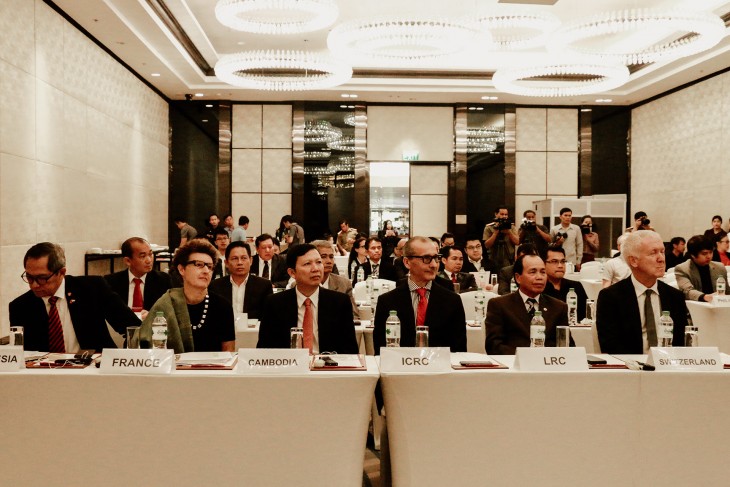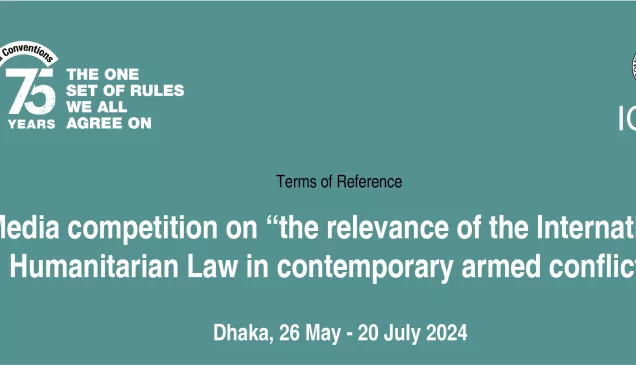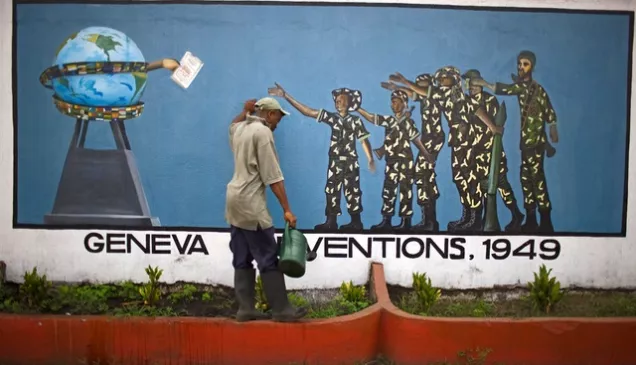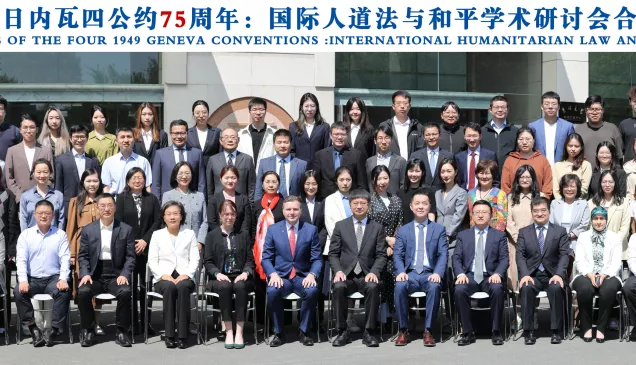Viet Nam and Laos mark 70 years of Geneva Conventions
Imagine your village has been attacked, your family is scattered and you have been taken captive. Blindfolded, you are shuffled into a truck crowded in by your captors. The sun is beating down at 50 degrees Celsius; there's no food and no water. What would you be thinking? Perhaps about what they will do to you? Or maybe you would be thinking of your family – whether they will be informed if you are killed or if your body will be returned to them?
Now imagine if the blindfolded prisoner was your son or your brother. What would you want for him? You may wish to see him again, safe and sound. You may want him to stand a fair trial if it comes to that. Did the rules change as you walked in the shoes of different people?
These are the exact kind of human emotions and fears that the Geneva Conventions of 1949 take account of as they lay down the basic principles that even wars must have limits, human dignity must be preserved, and the rules must stay the same regardless of which side you are on. At the end of World War II and the beginning of the Cold War, it was clear that the Geneva Conventions of 1906 and 1929 were not sufficient to prevent all parties from carrying out horrific acts of violence against civilians. This led to the Geneva Conventions of 1949 that are now ratified and being implemented by almost all countries in the world. In Viet Nam and Laos, countries that experienced widespread violations of the Conventions during the Indochina wars, ensuring respect for humanitarian principles is an ongoing effort. Marking 70 years of the Geneva Conventions, national events were held in Hanoi and Vientiane on 17 and 26 July respectively.

Addressing the events , head of the International Committee of the Red Cross (ICRC) mission for Viet Nam and Laos, Gianni Volpin said, "The Geneva Conventions of 1949 were adopted four years after the end of World War II and become universally accepted because they do not prevent efforts to defeat the enemy while clearly identifying unacceptable behaviour and the need for minimum protection of civilians and victims of conflict."

Khamhong Heuangvongsy, president of Lao Red Cross, highlighted that the Geneva Conventions have great symbolic value for Laos. "Laos ratified to the Conventions in 1956 while experiencing an internal armed conflict which made it the most heavily bombed per capita country in history. We are working closely with the ICRC to implement humanitarian policies especially for preventing all use of landmines and cluster munitions," said Heuangvongsy.

In Viet Nam, spreading awareness of the Geneva Convention is an important government policy. Le Thi Tuyet Mai, director-general of Department of International Law and Treaties, Ministry of Foreign Affairs, shared that the country can play an important role in the region. "As Viet Nam will chair ASEAN in 2020 and be non-permanent member of United Nations Security Council for 2020 and 2021, we will work together with the international community to promote respect for the Geneva Conventions and its effective implementation," she said.
Emphasizing the unchanging nature of the humanitarian principles endorsed by the Geneva Conventions, regional legal adviser of the ICRC, Fiona Barnaby said, "Seventy years ago, States decided that the rules will stay the same no matter what. Over the years and despite the development of new technologies, the basic principles of humanity that inspired these Conventions remain evergreen." Today, the ICRC renews its commitment to promote better understanding and respect for the basic tenets of the Geneva Conventions which continue to speak to each of us about the protection of our loved ones in the midst of armed conflicts and remind all of us that even wars have limits.



